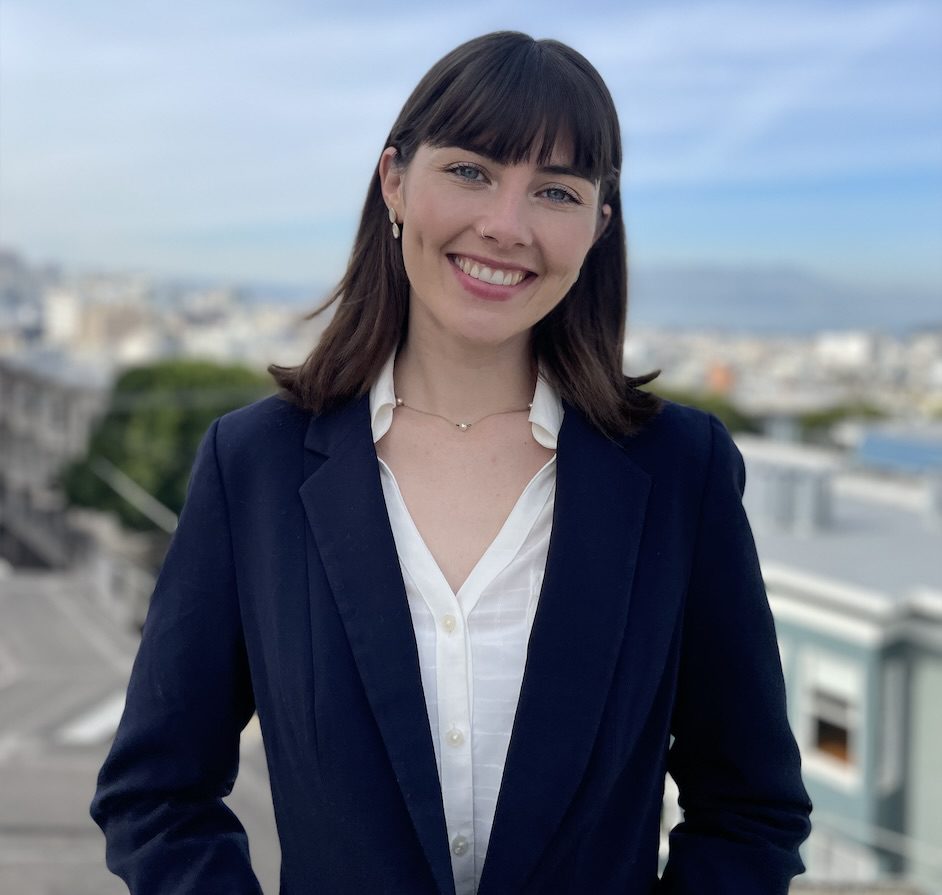Jillian MacLeod '23 Works to Make Reproductive Health Care Accessible to People with Disabilities

After graduating from UC Law SF in May, Jillian MacLeod ’23 is spending the next year fighting to expand access to reproductive health care for people with disabilities.
For people with disabilities, barriers to accessing abortion care can limit one’s control over an important life decision: whether and when to have children.
Recent UC Law SF graduate Jillian MacLeod ’23 is working to break down those barriers in her role as a Reproductive Justice Fellow at the Disability Rights Education and Defense Fund (DREDF), based in Berkeley, California.
“We want to ensure the promise of California being a sanctuary state for abortion access is a promise that applies to everyone,” MacLeod said, referring to Governor Gavin Newsom’s recent proclamations and legislative actions to protect and expand access to abortion care.
For MacLeod, the issue of disability justice is personal. Growing up in San Jose, she saw her mother retire early from a job she loved after her employer could not adequately accommodate her gradual loss of eyesight.
“When that happened, I realized I could become a disability rights lawyer and advocate for the rights of people like my mom,” she said.
MacLeod’s fellowship project aims to educate lawmakers, health care providers, and people with disabilities about what’s needed to ensure fair and equitable access to reproductive health care for all.
She is developing trainings for medical professionals on how to best serve people with disabilities, writing advocacy pieces for online publication, applying to present at annual conferences for abortion providers, and lobbying the state government to include information relevant to people with disabilities seeking abortion care on its website, abortion.ca.gov.
Additionally, she is drafting comments on a U.S. Department of Health and Human Services rulemaking proposal that seeks to update Section 504 of the Rehabilitation Act of 1973, the first major disability rights law passed in the U.S. Her comments will push for new rules that require all medical equipment be accessible to those with disabilities. Currently, there are no legally enforceable regulations governing the accessibility of medical equipment.
“That’s one of the things that can be a barrier to care,” she said. “If someone can’t get on an examination table, they can’t have an exam.”
She also intends to educate health care providers about other obstacles, including the need for sign-language interpreters during doctor’s visits and websites that are accessible to people who are blind.
“We’re making this project wide in its scope and trying to address all those different types of barriers,” she said.
On top of those efforts, she plans to inform patients and doctors about a new state law that lets people with disabilities make important decisions, including reproductive health care decisions, with the help of a trusted person, instead of ceding all decision-making power to a court-appointed guardian.
“Supported decision-making is a better way for people to make self-determined decisions about their medical care or finances without being in a guardianship or conservatorship,” she said.
Her year-long work, which started in September, is funded by the DREDF and UC Law SF’s Abascal Memorial Fellowship, which honors the memory of Ralph Santiago Abascal ’68, a highly regarded public-interest lawyer who worked closely with the leaders of the disability rights movement and who passed away in 1997 after a two-year battle with cancer.
MacLeod graduated from UC Law SF in May 2023 with a concentration in social justice lawyering. During law school, she externed with U.S. District Judge Edward J. Davila ‘79 in San Jose, Disability Rights California, Legal Aid at Work’s Disability Rights Program, and served as a Disability Rights Law Clerk for the firm Peiffer Wolf Carr Kane & Conway LLP.
She previously earned a bachelor’s degree in political science and American politics with a minor in feminist studies from UC Santa Barbara.
MacLeod, who recently passed the California Bar Exam, said she believes her work over the next year will help tangibly improve access to abortion care for people with disabilities in California and across the nation.
She said, “This fellowship is a great opportunity to combine my interests and create my dream job at the intersection of disability justice and reproductive justice.”